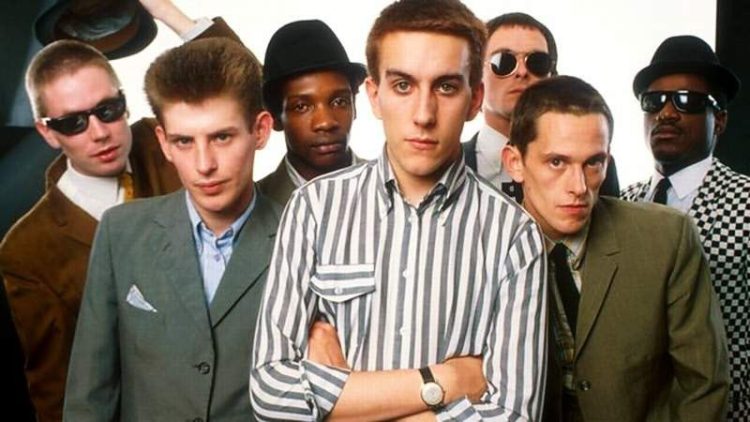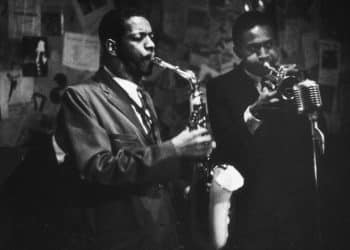The Specials, a British ska band formed in 1977, is widely regarded as one of the most influential bands of the late 1970s and early 1980s. Their music is a unique blend of punk, reggae, and ska, with a distinct political and social consciousness. The band’s message of racial unity, political activism, and anti-authoritarianism struck a chord with audiences and critics alike, leading to a string of hit singles and albums.
In this list, we will take a look at the 10 best songs by The Specials that continue to inspire and entertain fans across generations. From their chart-topping hits to their lesser-known gems, each of these songs showcases the band’s signature sound and lyrical prowess.
1. Ghost Town
“Ghost Town” is a song by British ska band The Specials, released in 1981. It is one of their most popular and well-known tracks, known for its haunting melody, politically charged lyrics, and unique blend of ska, reggae, and post-punk influences. The song deals with themes of urban decay, social unrest, and economic hardship, painting a bleak picture of life in Britain during the early 1980s. The track features a sparse and eerie instrumental arrangement, punctuated by brass accents and ghostly backing vocals, which perfectly capture the mood of the lyrics.
2. A Message to You Rudy
A Message to You Rudy” is a ska song by The Specials, originally recorded by Dandy Livingstone in 1967. The Specials’ version, released in 1979, features a lively and upbeat tempo that is characteristic of the ska genre, with prominent horns and a catchy guitar riff. The lyrics convey a message of love and support to the titular Rudy, encouraging him to keep moving forward and not to worry about the troubles of the world. The song has since become one of The Specials’ most popular and well-known tracks, and has been covered by various other artists in different styles.
3. Too Much Too Young
“Too Much Too Young” is a 1980 hit by The Specials, a British ska band formed in Coventry in 1977. The song became their first UK number one single, and it quickly became an anthem of the British ska movement of the late 1970s and early 1980s. The song features a mix of fast-paced ska, reggae, and punk rock influences and addresses the issue of teenage pregnancy and the impact it has on young lives. The energetic brass section, pounding drums, and catchy chorus create an infectious, danceable track that still resonates with audiences today.
4. Gangsters
“Gangsters” is a song by the British ska revival band The Specials. Released in 1979 as the band’s debut single, it was an instant hit and is now considered a classic of the genre. The song was originally titled “The Selecter” after the band that became The Selecter, and was intended to be their debut single. However, The Specials reworked the song, added their own lyrics, and released it themselves. The song features a driving ska beat, catchy guitar riffs, and powerful horns.
5. Nite Klub
“Nite Klub” is a classic ska song by The Specials, originally released as a single in 1979. It features a driving rhythm section and catchy horn melodies, as well as the distinctive vocals of Terry Hall. The song’s lyrics address the frustrations and monotony of working in a nightclub, with Hall singing lines like “It’s a nite klub and I’m feeling so damp” and “I don’t wanna go to work tomorrow.” “Nite Klub” is a prime example of the political and social commentary present in much of The Specials’ music, as well as their signature blend of ska, punk, and reggae influences.
6. Concrete Jungle
“Concrete Jungle” is a popular song by the British ska band The Specials. The track was released in 1979 and features a blend of ska and punk rock, which were two popular genres in the UK during that time. The song starts with a bass-heavy instrumental intro that sets the tone for the fast-paced, energetic rhythm that follows. The lyrics of the song are inspired by the band’s experience of living in a rough urban environment, as they describe the hardships of life in the city and the struggles of the working-class.
7. Do Nothing
“Do Nothing” is a song by the British ska band The Specials. It was released as a single in 1980 and later included on the band’s album “More Specials”. The song features a unique mix of reggae and ska with a catchy bassline, horns, and lyrics that touch on the boredom and disillusionment of everyday life. The song’s lyrics describe a character who is stuck in a dead-end job, going through the motions of life without any real purpose or passion. The song’s chorus is a plea to break free from this monotony and find something more meaningful to do.
8. Stereotype
“Stereotype” is a song by The Specials, a British 2-Tone ska revival band that was popular during the late 1970s and early 1980s. The song was released in 1980 on their second album, “More Specials”. “Stereotype” has a distinct ska rhythm with a strong brass section and lively guitar riffs. The lyrics are a commentary on the various stereotypes that exist in society, particularly those related to race and class. Lead singer Terry Hall delivers the lyrics in his signature deadpan style, creating a sense of irony and social commentary.
9. Rat Race
“Rat Race” is a politically charged song by The Specials that was released in 1980 as a double A-side single with “Rude Buoys Outa Jail”. The song is a commentary on the bleakness and futility of everyday life, particularly for those living in poverty in the UK. With its catchy yet melancholic melody, “Rat Race” features strong vocal performances and a driving ska rhythm that is sure to get listeners dancing while also contemplating the harsh realities of life.
10. Man at C&A
“Man at C&A” is a song by British ska band The Specials, released in 1980 on their album “More Specials”. The song features the band’s signature upbeat and energetic sound, with prominent horns and catchy lyrics. The song’s title and lyrics reference the Dutch clothing store C&A, which was popular at the time in the UK. The lyrics also touch on themes of conformity and consumerism, with the protagonist feeling trapped in a life of meaningless work and materialism.








